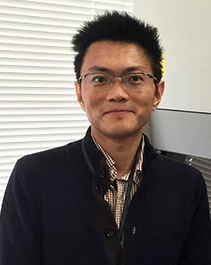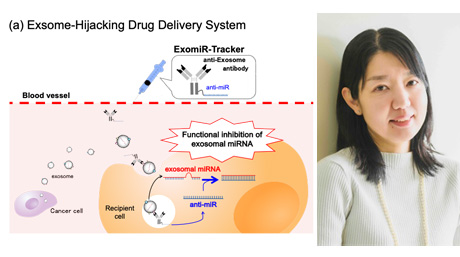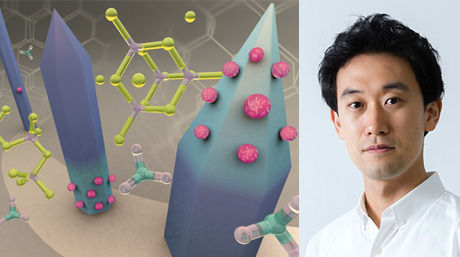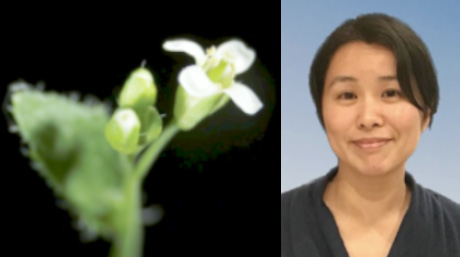Life Science and Technology News
【Labs spotlight】 Kume and Shiraki Laboratory
Modeling organ development and homeostasis using human iPS cells
The Department has a variety of laboratories for Life Science and Technology, in which cutting-edge innovative research is being undertaken not only in basic science and engineering but also in the areas of medicine, pharmacy, agriculture, and multidisciplinary sciences.
This "Spotlight" series features a laboratory from the Department and introduces you to the laboratory's research projects and outcomes. This time we focus on Kume and Shiraki Laboratory.

Areas of Supervision
Primary/Life Science and Technology
Secondary/Science and Technology for health Care and Medicine, Human Centered Science and Biomedical Engineering
Professor Shoen Kume![]()

Areas of Supervision
Primary/Life Science and Technology
Secondary/Science and Technology for health Care and Medicine
Associate Professor Nobuaki Shiraki![]()
| Degree | Professor Shoen Kume : PhD 1993, Osaka University Associate Professor Nobuaki Shiraki : PhD 2006, Kumamoto University |
|---|---|
| Areas of Research | Professor Shoen Kume : Pluripotent stem cells, Regenerative medicine, Molecular biology, Developmental biology Associate Professor Nobuaki Shiraki : Stem cell biology, Regenerative medicine, Regulatory science |
| Keywords | Professor Shoen Kume : Differentiation, Pancreas development, Diabetes, Drug discovery Associate Professor Nobuaki Shiraki : ES/iPS cells, Endoderm differentiation, Methionine, Amino acid metabolism |
| Website | Kume and Shiraki Laboratory |
Research interest
Professor Shoen Kume
The main goal of the lab is to understand the development of endodermal derived tissues, including the pancreas, liver and intestine, which are important organs. We use mouse and ES/iPS cell models to search for molecules that function in early events of pancreatic development, and identify genes that regulate differentiation and development. We then utilize these knowledge for the establishment of in vitro differentiation system using mouse and human ES cells and iPS cells.
We use different experimental systems, such as mouse or ES cells, which have the advantage in manipulating in vitro, to identify molecules function during development. We established an efficient in vitro system for ES cells to differentiate into definitive endoderm and then specific lineages of pancreas, or to hepatic and intestinal lineages. To gain insights into molecular mechanism underlying development, we isolate ES cell-derived pancreatic/hepatic/intestinal progenitor cells or intermediate cell types and analyze genes expression profiles in these cells. We use ES cell differentiation system and perform large scale screening for low molecular compounds that promote differentiation. This way, we can identify novel signal molecules that take part in these processes, and aim for drug discovery. Up to date, we have been successful to identify novel genes and novel pathways that participate during differentiation of these organs.
Associate Professor Nobuaki Shiraki
Our laboratory's interests are endoderm differentiation, especially pancreas and liver and intestine. We have established differentiation methods by optimization of culture media and scaffolds. Recently, we have focused on amino acid metabolism of human ES/iPS cells and found that methionine (Met) metabolism is essential for maintaining undifferentiated Pluripotent stem cells and regulates their differentiation. Met deprivation results in a decrease in S-adenosyl-methionine (SAM), triggering the activation of p53 signaling. And also, Met deprivation of undifferentiated cells decreased NANOG expression and increased the differentiation potency. However, the molecular mechanisms of Met deprivation induced above events. So, we are working for the elucidation of the molecular mechanism of methionine metabolism breakdown induced cell death and differentiation, and its application for ES/iPS cell endoderm differentiation. Research themes are 1) elucidation of the gene expression regulation of methionine metabolism inhibition in human embryonic/induced Pluripotent stem cells (ES/iPS) cells, 2) the identification of intracellular Met concentration sensing systems and 3) application of Met metabolism inhibition into pancreatic and hepatic differentiation.
Research result
Selected publications
Professor Shoen Kume
- [1] Sakano D., Choi S, Kataoka M, Shiraki N, Uesugi M, Kume K, Kume S. Dopamine D2 receptor-mediated regulation of beta cell mass. Stem Cell Report 7, 95-109, 2016.
- [2] Shahjalal HM, Shiraki N, Sakano D, Kikawa H, Ogaki S, Baba H, Kume K., Kume S. Generation of insulin-producing beta-like cells from human iPS cells in a defined and completely Xeno-free culture system. J. Mol. Cell Biol. 6, 394-408, 2014.
- [3] Shiraki N., Shiraki Y., Tsuyama T., Obata F, Miura M, Nagae G, Aburatani H., Kume K, Endo F, Kume S*. Methionine metabolism regulates maintenance and differentiation of human Pluripotent stem cells. Cell Metab. 19, 780-794, 2014.
- [4] Sakano D, Shiraki N, Kikawa K, Yamazoe T, Kataoka M, Umeda K, Araki K, Mao D, Matsumoto S, Nakagata N, Andersson O, Stainier D, Endo F, Kume K, Uesugi M and Kume S. VMAT2 identified as a regulator of late-stage beta cell differentiation. Nat. Chem. Biol. 10, 141-148, 2014.
- [5] Yamazoe T, Shiraki N, Toyoda M, Kiyokawa N, Okita H, Miyagawa Y, Akutsu H, Umezawa A, Sasaki Y, Kume K and Shoen Kume. A synthetic nanofibrillar matrix promotes in vitro hepatic differentiation of embryonic stem cells and induced Pluripotent stem cells. J. Cell Sci. 126, 5391-5399, 2013.
- [6] Ogaki S, Shiraki N, Kume K, Kume S. Wnt and Notch signals guide embryonic stem cell differentiation into the intestinal lineages. Stem Cells 31, 1086-1096, 2013.
- [7] Umeda K, Suzuki K, Yamazoe T, Shiraki N, Higuchi Y, Tokieda K, Kume K, Mitani K., Kume S. Albumin gene targeting in human embryonic stem cells and induced Pluripotent stem cells with helper-dependent adenoviral vector to monitor hepatic differentiation. Stem Cell Res. 10, 179-194, 2013.
- [8] Higuchi Y, Shiraki N., Yamane K, Qin Z, Mochitate K, Araki K., Senokuchi K, Yamagata K, Hara M, Kume K, and Kume S*. Synthesized basement membranes direct the differentiation of mouse embryonic stem cells into pancreatic lineages. J. Cell Sci. 123, 2733-2742, 2010.
- [9] Shiraki N, Umeda K, Sakashita N, Takeya M, Kume K and Kume S. Differentiation of mouse and human ES cells into hepatic lineages. Genes Cells 13, 731-746, 2008.
- [10] Shiraki N, Yoshida T, Araki K, Umezawa A, Higuchi Y, Goto H, Kume K, and Kume S. Guided differentiation of embryonic stem cells into Pdx1-expressing regional-specific definitive endoderm. Stem Cells 26, 874-885, 2008.
- [11] Rajagopal J, Anderson W J, Kume S, Martinez OI and Melton DA. Insulin staining of ES cell progeny from insulin uptake. Science 299, 363, 2003.
- [12] Saneyoshi T, Kume S, Amasaki Y, and Mikoshiba K. The Wnt/calcium pathway activates NF-AT and promotes ventral cell fate in Xenopus embryos. Nature 417, 295-299, 2002.
- [13] Kume S, Muto A, Inoue T, Suga K, Okano H and Mikoshiba, K. Role of Inositol 1, 4, 5-trisphosphate receptor in ventral signaling in Xenopus embryos. Science 278, 1940-1943, 1997.
- [14] Kume S, Muto A, Aruga J, Nakagawa T, Michikawa T, Furuichi T, Nakade S, Okano H and Mikoshiba K. The Xenopus InsP3 receptor: structure, function and localization in oocytes and eggs, Cell 73, 555-570, 1993.
Associate Professor Nobuaki Shiraki
- [1] Shahjalal HM, Shiraki N, Sakano D, Kikawa K, Ogaki S, Baba H, Kume K, Kume S. Generation of insulin-producing β-like cells from human iPS cells in a defined and completely xeno-free culture system. J Mol Cell Biol. 2014 Oct;6(5):394-408.
- [2] Shiraki N, Shiraki Y, Tsuyama T, Obata F, Miura M, Nagae G, Aburatani H, Kume K, Endo F, Kume S. Methionine metabolism regulates maintenance and differentiation of human Pluripotent stem cells. Cell Metab. 2014 May 6;19(5):780-94.
- [3] Sakano D, Shiraki N, Kikawa K, Yamazoe T, Kataoka M, Umeda K, Araki K, Mao D, Matsumoto S, Nakagata N, Andersson O, Stainier D, Endo F, Kume K, Uesugi M, Kume S. VMAT2 identified as a regulator of late-stage β-cell differentiation. Nat Chem Biol. 2014 Feb;10(2):141-8.
- [4] Yamazoe T, Shiraki N, Toyoda M, Kiyokawa N, Okita H, Miyagawa Y, Akutsu H, Umezawa A, Sasaki Y, Kume K, Kume S. A synthetic nanofibrillar matrix promotes in vitro hepatic differentiation of embryonic stem cells and induced Pluripotent stem cells. J Cell Sci. 2013 Dec 1;126(Pt 23):5391-9.
- [5] Ogaki S, Shiraki N, Kume K, Kume S. Wnt and Notch signals guide embryonic stem cell differentiation into the intestinal lineages. Stem Cells. 2013 Jun;31(6):1086-96.
- [6] Shiraki N, Yamazoe T, Qin Z, Ohgomori K, Mochitate K, Kume K, Kume S. Efficient differentiation of embryonic stem cells into hepatic cells in vitro using a feeder-free basement membrane substratum. PLoS One. 2011;6(8):e24228.
- [7] Shiraki N, Umeda K, Sakashita N, Takeya M, Kume K, Kume S. Differentiation of mouse and human embryonic stem cells into hepatic lineages. Genes Cells. 2008 Jul;13(7):731-46.
- [8] Shiraki N, Yoshida T, Araki K, Umezawa A, Higuchi Y, Goto H, Kume K, Kume S. Guided differentiation of embryonic stem cells into Pdx1-expressing regional-specific definitive endoderm. Stem Cells. 2008 Apr;26(4):874-85.
Contact
Professor Shoen Kume
Room 812, B1 building, Suzukakedai campus
Email skume@bio.titech.ac.jp
Associate Professor Nobuaki Shiraki
Room 810, B1 building, Suzukakedai campus
Email shiraki@bio.titech.ac.jp
*Find more about the lab and the latest activities at the lab site![]() (Japanese).
(Japanese).
*May 1, 2025:Some of the content has been updated with the latest information.





